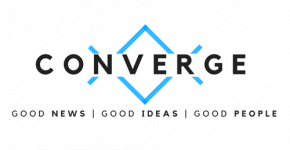Buying a house and starting or growing a business are major life decisions, but from the outset, they seem to not have very much in common, right? Wrong. To achieve the status of a proud homeowner or to call yourself a successful businessman, you will have to go through several different processes, have complicated terminology thrown at you, and face risks and hidden costs you had not considered at the start of your personal or business venture. Having a legal team advising and guiding you in the right direction to help you achieve your objective is in your best interests.
Legally binding contracts
Once a seller has accepted an offer on the house, and a lender has granted a mortgage loan, there is the exchange of contracts between the seller and buyer. These contracts are legally binding; for the seller, he, she or they to relinquish ownership of the property with the buyer now claiming full rights, responsibilities and duties toward the house.
At the same time, the owner now has to abide by the conditions of the loan attached to paying back the mortgage every month, known as the “offer of advance”. Failure to do so could result in losing your house through foreclosure, where the bank or lender puts the house back on the market as collateral for the funds that are still owing.
Similarly, a binding contract in commercial leasing also exists between the tenant and landlord, outlining their respective rights and responsibilities as the landlord and tenant. The tenant is expected to pay rent on time or otherwise face the threat of eviction.

Thorough investigative research
When buying a house, you have to consider several factors, some of them personal and others external. Is your budget realistic and can you afford the house you are considering buying? Next, with the help of your mortgage solicitor and conveyancer, Local Authority Searches are conducted to gather information on the property and surrounding areas. Existing possible threats that could have on an impact on your lifestyle are uncovered at this stage and are likely to influence your decision to buy the house.
Caution also needs to be taken when it comes to commercial property; price, location and the type of business you are running – whether you need a warehouse over a few rooms – will impact the kind of space you decide to rent. For example, in opening a restaurant, you need to attract customers, which you will not get if your establishment is in an area deemed unsafe. If your rent is cheap, consider the reasons for this.
In making big decisions, there is risk
In having your own home, there is great reward, but also risk and things can and do go wrong.
Before you even own a home, you face disappointments that cost you time and money. You might put in an offer and have it accepted, only for the seller to change their mind when you have already invested in lawyer’s fees and administrative costs.
If you have successfully bought a house and obtained a loan, you might come across unexpected expenditures, coveted payments along with your bond, which leaves you inundated in debt and potentially unable to pay it back. Put plainly; you have bitten off more than you can chew and run the risk of losing the house.
With commercial leasing, the landlord faces more risk than the tenant, i.e. damages unto the property for example. That said, the person renting is not covered by consumer protection because the impression is that the lease agreement is between two knowledgeable persons. If the relationship turns haywire, i.e. a landlord with unreasonable demands like hiking up the rent, you will need the advice of a commercial lease solicitor.
Do not put yourself at risk – you need proper legal coverage when it comes to more significant decisions in life, especially when it comes to starting new business or buying property.





